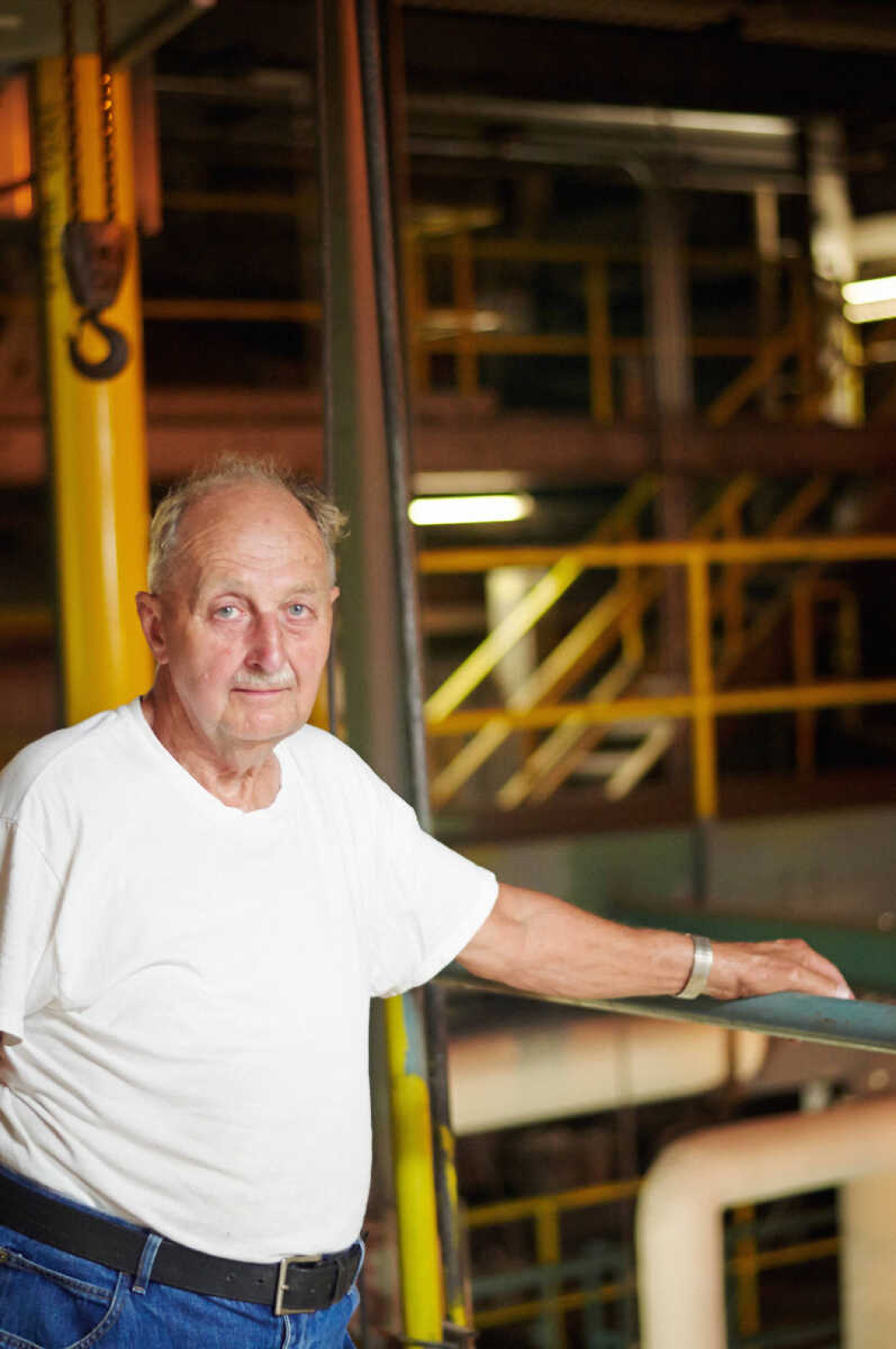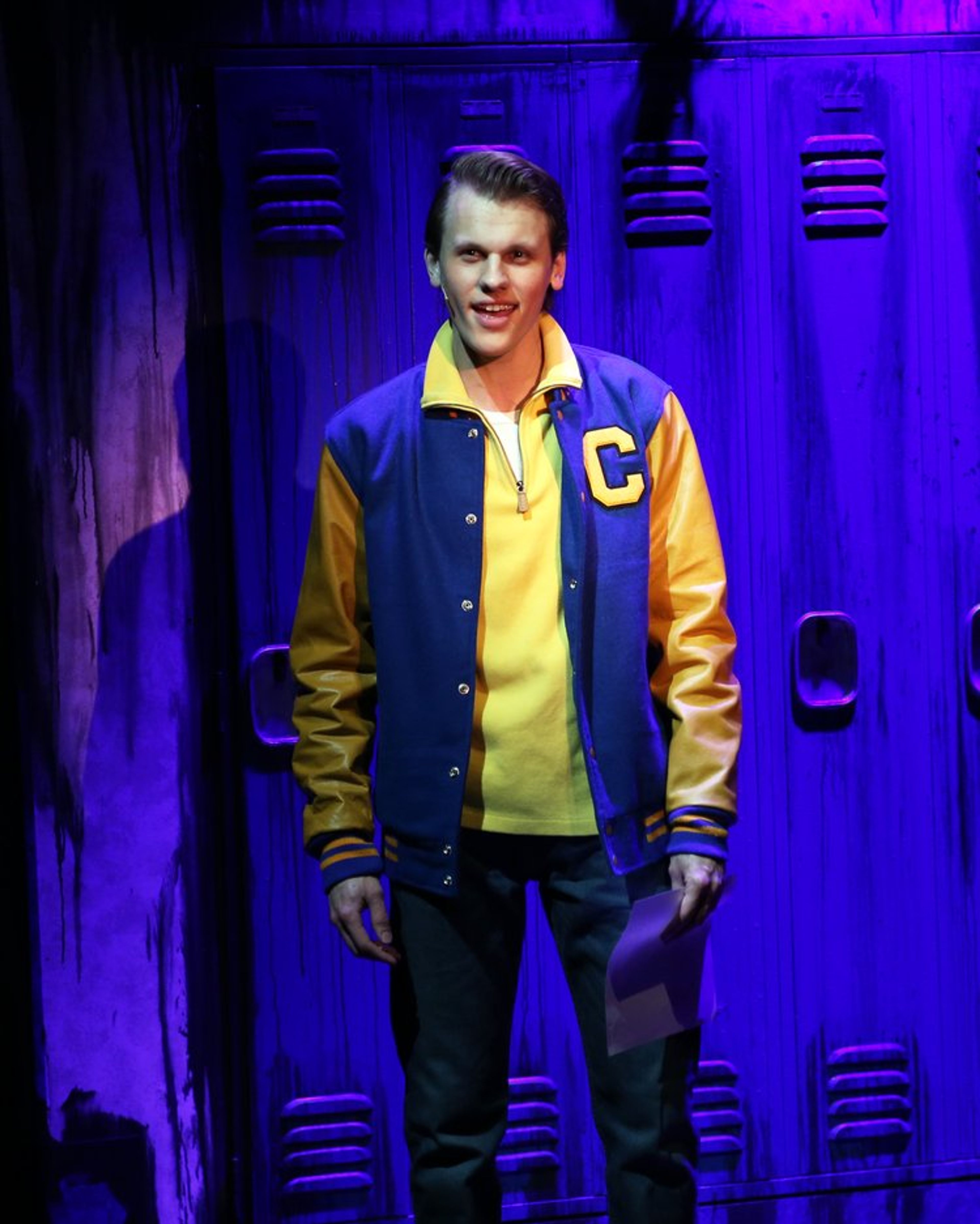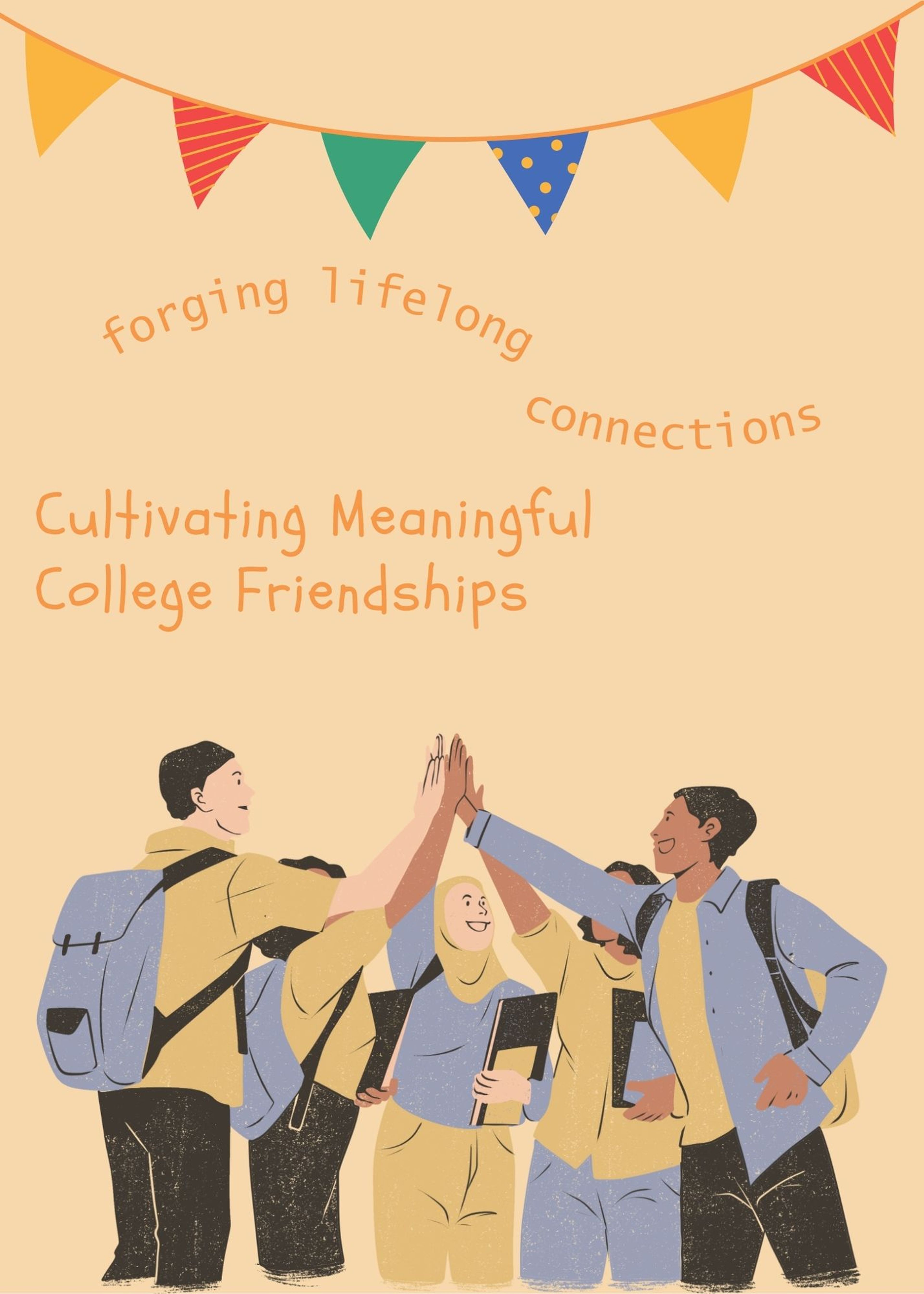The power plant is a towering concrete structure with the great responsibility of providing heating and power to the entire Southeast Missouri State University campus, but behind the concrete is a man who has seen it all and will pull you in for a hug before you can get your foot in the door with a handshake.
Oliver Groseclose, 75, better known as "Ollie," has worked for Southeast for almost 53 years, which makes him the longest-working employee on campus.
Ollie, who is from Delta, Mo., but now lives is Cape Girardeau with his wife, is a licensed engineer who went to college in St. Louis for two and a half years when students only met for class once or twice a week. After that he worked as an electrician in the Navy on the 6th fleet cruiser from 1957 to 1960.
He also worked for a plumbing and heating company, delivered newspapers for a news agency and even worked in a bowling alley setting up pins and putting up the marquee.
"Oh, I've done a few things," he said.
He began work at the power plant in 1961.
"I've done all kinds of work in this plant," Ollie said. "I've been through 18 to 20 supervisors. I've been with over 30 to 45 men in supervision. I weld pipe fittings, do piping, clean-up janitor work, I don't back down on anything being done in this plant that increases operation and helps the operation of this unit."
Last year the university made the switch from coal fire boilers to natural gas boilers. Ollie said less maintenance and equipment is required because of the switch.
"Before, on the other boilers, we had round-the-clock watch," Ollie said. "We had to. We had to keep the coal in the boiler and keep the turbine running and make battery readings on it. Now everything folds up at night at 11 p.m. We'll leave while its running, and we just lock the door and go home, which I'm not overly impressed."
The new boilers have proven to be an easier way of powering the university, but for Ollie it's less for him to do. The hard labor that goes into working a job is what he seems to miss the most.
Ollie said it was a dirty job working with the coal fire, but it was something that actually worked his body.
"[The new boilers], they cut back on what we do," Ollie said. "We were busy with the coal fire units, but I think everybody misses the coal fire units because it was something they could do and they felt like they were keeping the plant running where these are automated. The automated boilers have really cut back on the work we do here."
When asked if the plant stayed open 24/7, Ollie said he wished it did.
"Now we make rounds on the plant every two hours," Ollie said. "I do chemistry for the boilers and the condensate system for the campus here. We keep up with what's going out to all the buildings, clean the boilers and clean a little around the plant. It's really a different ballgame to me. But it's OK. I can live with it, but I'd rather be working on the old equipment."
Facilities Management energy manager Kevin Mayberry has enjoyed being around Ollie in the short period of time that he has known him.
"Overall, I've found him to be one of the most pleasurable individuals to work with," Mayberry said. "He's always been there to do whatever it takes to make sure the campus has steam."
Along with the plant, the university has about six miles of underground concrete tunnels that service the entire campus. The tunnels are about eight feet tall by eight feet wide.
"The tunnels have steam lines, condensate water lines, telephone lines, fiber optic cable, fresh water - everything," Ollie said. "Whatever that building desires to operate the tunnel maintains it. To me the tunnels are the lifeline of the university."
According to Ollie, all high voltage electricity goes to the plant and then is distributed throughout the campus from there. Towers draws more power than any other building, using 13,800 volts of electricity daily.
Ollie said when the university has problems, plant workers go in the tunnels and solve them.
"We had the chill system go down a while back," Ollie said. "Structured steel failed in a tunnel and about 80 feet of pipe that chills down and cools the whole campus went down on the south leg. We had to go in and prop it all back up and put it back in the racks and there's one thing -- and that's don't break the pipes. If we did the university would have been shut down. But we fix it. We do a lot of work out in campus, all of us do."
Ollie said the workers shut down the plant at 11 p.m., and it doesn't start running again until 6 a.m. They come in at 7:30 a.m. and work on Saturdays and Sundays, too.
"It's not a bad place," Ollie said. "We all try to work for the better of the university, and I think everybody feels that way and that's their job, too. I don't regret a thing. In fact, I've enjoyed it all the way."
Ollie likes to work on and repair old railway cars as a hobby. He worked on a railcar that now is used as a gift shop and an art museum on a side track in Jackson, Mo.
According to Ollie, he's put in a lot of time and money on the project, at least $350,000 to $500,000.
"I just finished 12 years working on a steam locomotive to get it back in service, and I'd like to get everybody together to put money into it," Ollie said.
When he's not working at the power plant or on his stock cars, Ollie likes to work with mechanics at home.
"I have 20 lawnmowers, four dump trucks, a backhoe, trailers four cars and two motorcycles," Ollie said. "I'm loaded up. I do what I want to do."
Ollie also likes to write short stories. One of the children's novel he wrote called "Going to Grandma and Grandpa's Place" was published several years ago and sold 5,000 copies nationwide. He mentioned that he'd like to see the story be turned into a movie one day.
For Ollie, retiring is not an option or something he thinks will happen anytime soon.
"Everybody always asks that question,'Ollie, how long are you going to stay up here?' I don't know," he said. "I enjoy working. If they carry me out, they are going to carry me out of here in a casket or a stretcher or whatever."
Ollie paused for a moment to grab the tissues out of his shirt pocket to wipe the tears from his eyes and sat quietly before he began to speak again.
"I try to treat people right," Ollie said. "That's the only way you get in life. That's what ahead. There's a lot ahead of us that people don't realize. There's a whole other world ahead of us."
Ollie suffered from a stroke and had a heart attack in 2010. He now has a stint in the middle of his heart, but he hasn't had any problems since then.
"I try to be honest with people," Ollie said. "I try to respect everybody regardless of who they are. There's always good in everybody, you have to overlook the bad. There's turmoil that I've been through on several occasions, but I've come out on top."







